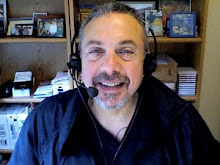In today’s economy, there are a lot of people applying for the few jobs available. I know this because I’m one of the people doing the applying.
My question is: How long should I wait after a first telephone interview before concluding the employer isn’t interested in me?
Let’s assume I’ve already sent an appropriate thank you note and called a couple days after to confirm it was received (I do). What then?
On the one hand, I don’t want to be pestering the hiring company every few days with messages. On the other hand, I don’t want to be lost in the shuffle, either.
Thanks,
-- name withheld by request
This is a challenging situation to be sure. How can one be at "top of mind" without being "in your face?" When does determination and persistence turn into harassment and pestering?
What the question really addresses is the relationship in a tough economy between the person expressing interest in the open position and the person doing the hiring. Seems to me that the respective roles have changed because of internet postings and the overwhelming number of submissions.
To get better responsiveness and to stand out from the bulk of submissions, the candidate has to set the groundwork BEFORE the follow up phase. For purposes of this discussion, let's break it down into three areas: 1) pre-interview preparation; 2) interview behavior; and 3) post-interview communication.
Pre-interview preparation:
Earlier on this blog we have given some concrete action steps to prepare for the interview. When you learn all you can about the company, products, people and position using the tools outlined there, you will set yourself apart from the competition in the interview.
By using your personal network (as well as LinkedIn and similar sites), you come to the interview knowing people at the company and how the position under consideration fits into the big picture. Better still is knowing something about the person to whom you will be speaking.
If you secure the telephone interview through an online posting, unfortunately, you are in the weakest position possible. You were probably selected for a key word match on your resume by an automated Applicant Tracking System (yes, it's true) or by a recent college graduate who is in a Human Resources department with a very limited grasp of the actual functional role.
If that is the case, you need to establish the predicate during the telephone interview for all future communication.
Interview behavior:
Because these are challenging times and a "buyers' market," candidates with whom I speak seem afraid to ask too many questions for fear of alienating the person with whom they are interviewing ... and not moving on to the next round.
In my experience, people who ask questions and express appropriate interest move farther faster in the process than those who do not ask questions or express interest.
As a candidate, when you set the appointment, it is fair for you to ask some baseline questions:
1. How long will the conversation go?
2. With whom will I be speaking?
3. Any areas of my skills or experience of particular interest?
Then, when the appointment begins, it is appropriate for you, the candidate, to request a nominal amount of time be saved (like five minutes) so that you can ask a few questions.
I recently had an email interaction with a candidate who was phone screened by a contract recruiter for a large sports equipment company. After the phone meeting, the candidate reached out to ask what I knew about the company.
It quickly became apparent the candidate did not know: a) the geographic location of the position or b) the name of the hiring manager. "We ran out of time ... " he said.
During the telephone interview, as a candidate, you need to learn material facts about both the position and the selection process.
Regarding the position:
1. Geographic location
2. Hiring manager
3. Key responsibilities
4. Measures of effectiveness
5. Background suitability
Regarding the process:
1. How many people are getting interviewed by phone?
2. How many of those will move to the next round?
3. When will the next round take place?
4. Who is involved in the next round?
5. How do I stack rank against others in process?
6. What questions or concerns do you have about my background?
If you're spending your time, you deserve answers to those questions.
Post-interview communication:
Send a thank you email immediately after the telephone interview expressing interest and letting the person know you will follow up at the time they noted.
Then follow up religiously at that time. And regularly. Find reasons to communicate. Perhaps there is an article in a trade journal relating to a subject discussed. Or maybe there's a trade show coming up and you want to know if you can connect with anyone there.
No one is "too busy" to respond. Sorry, common courtesy demands a response in a timely manner ... especially if they have asked you to spend time on the phone. No one has ever lost a position because they were too persistent as long as the follow up is professional, has content and is at appropriate intervals.
Subscribe to:
Post Comments (Atom)

Government should provide loans in zero% interest to the people who are graduated and wanna start their self small business, This will decrease the problem of unemployment because a new business will provide the space of employment for other unemployed people. Employment News
ReplyDeletea very informative blog
ReplyDeletealso u can search for ccc result
and latest-govt-jobs
on Dainik Rojgar
https://gosarkarinaukarius.in/
ReplyDeleteget govt jobs notification:-
with direct official link to apply online, are updated here. Get the latest vacancy details of vaccines name Recruitment registration process, selection process, examination fee, interview dates and more information here.
https://gosarkarinaukarius.in/ssc-cgl-recruitment-answer-key-2020/